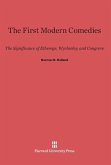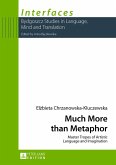Seminar paper from the year 2021 in the subject English Language and Literature Studies - Literature, grade: 2,3, LMU Munich, language: English, abstract: In the first part of this paper, I will analyse how the depiction of masters and servants in Shakespeare¿s plays can be traced back to the Italian Commedia dell¿arte and how its characters serve Shakespeare in his comedies. I will give a general overview of the importance of Service in his works as well as in the Early Modern society, before turning to one comedy in specific. Namely, the ¿The Two Gentlemen of Veronä, which is a significant example of different master-servant relationships. Several passages of the comedy mention the interplay of master and servant, whereas it is also important to bear in mind that a lover would refer to his or her beloved as master or mistress without him or her being an actual servant in the conventional sense. The described different forms of service in Shakespeare¿s plays lead to the basic question of the paper¿s next part. How could different concepts of love be found to be the ground of a master-servant relationship? There are three concepts of love to be introduced here: Nomos, Eros and Philia. Elements of these forms of love can be found throughout The Two Gentlemen of Verona, which will be examined based on certain relationships, notably between the characters Proteus and Julia, Proteus and Valentine, Valentine and Silvia as well as between Julia and her servant Lucetta.








